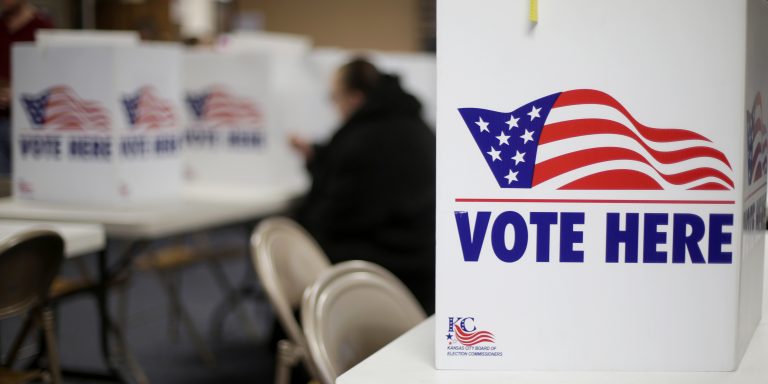INTELBRIEF
September 21, 2020
IntelBrief: Growing Concern Over Foreign Interference in 2020 U.S. Presidential Election

Bottom Line Up Front
- In testimony before the U.S. House of Representatives Committee on Homeland Security, FBI Director Wray confirmed that Russia is actively meddling in U.S. politics to impact the November presidential election.
- When the Trump administration ‘cherry-picks’ intelligence it distorts the nature of the threat, endangers Americans, and encourages malign actors like Russia to ramp up influence operations and disinformation tactics.
- Hackers from China, Iran, and Russia have all been launching increasingly sophisticated cyberattacks, in an aggressive onslaught designed to breach U.S. government networks as well as penetrate private sector industries.
- The November 2020 U.S. presidential election will be unique for several reasons, including elevated levels of partisanship, widespread fear of domestic social unrest, and the uncertainty caused by COVID-19.
In testimony last week before the U.S. House of Representatives Committee on Homeland Security, FBI Director Christopher Wray confirmed what many national security analysts suspected—Russia is actively meddling in U.S. politics in the lead up to the November 2020 presidential election. The Russian disinformation campaign is designed to sully the reputation and image of former Vice President Joseph R. Biden Jr., the Democratic nominee. Disinformation tactics have focused on questioning Mr. Biden’s mental acuity and physical health. Even though President Trump— who is notoriously soft on Russian President Vladimir Putin—has consistently attempted to downplay Russian interference in U.S. politics, FBI Directory Wray described Moscow’s current efforts as ‘very active.’ Putin believes that Russia’s 2016 interference was a significant return on investment, and has directed Russian intelligence to find innovative ways to disrupt and distort the upcoming presidential election, now just 43 days away.
Just recently, a whistleblower from the Department of Homeland Security’s intelligence division claimed that senior officials within DHS directed analysts to eschew producing reports on Russian interference and instead focus on threats from China and Iran. ‘Cherry-picking’ intelligence is dangerous, distorts the true nature of the threat, and makes Americans less safe. It further encourages malign actors like Russia to ramp up influence operations, particularly as the Kremlin becomes more confident that the Trump administration will dismiss continued Russian attempts to sow division among American citizens. Russia is relying on covert proxy websites and official Russia media to amplify its influence operations and broader disinformation campaign. Russia also uses false personas and manufactured stories that maintain a veneer of plausibility in order to dupe unsuspecting American citizens. With tensions seemingly at an all-time high following COVID-19 lockdowns, demonstrations over the murder of George Floyd, and protests and counter-protests in major American cities, foreign actors have an array of contentious topics to promote on social media.
Hackers from China, Iran, and Russia have been ramping up cyberattacks, seeking to gain access to the email accounts of staffers and consultants working for both Democrats and Republicans. Among the Russian hackers are units from Russian military intelligence. In 2020, unlike in 2016, the United States is more prepared. U.S. Cyber Command (CYBERCOM) is actively defending against Russian influence operations in an attempt to disrupt Moscow’s disinformation campaign. This more aggressive posture is designed to deter Russia from interfering directly in the November election. Similar to the 2018 mid-term elections, those tasked with election security and maintaining the integrity of the voting process have watched with alarm as malign influence attempts proliferate in the weeks leading up to the election.
The November 2020 U.S. presidential election will be unique for several reasons. First, the country appears more divided than at any time in recent memory. Partisanship now dominates political discourse, with many Americans taking to social media to represent ‘their’ party while simultaneously denigrating the other side. This elevated acrimony provides Russia with the opportunity to divide Americans along racial, socio-economic, and political lines, flooding social media with falsehoods and disinformation. Second, COVID-19 has added an entirely new dimension, with many uncertain how it could impact in-person voting, and President Trump repeatedly warning against the possibility of widespread voter fraud, although without any actual evidence. While the primary goal of Russia and other foreign meddlers is to sway the election in favor of the candidate of their choice, a secondary objective is to create chaos and uncertainty surrounding the election itself, and thus, call into question the legitimacy of the results. A nightmare scenario could be a weeks-long delay in determining the winner of the election, resulting in widespread civil unrest and violent street clashes, providing even more fodder for malign actors to seize upon.